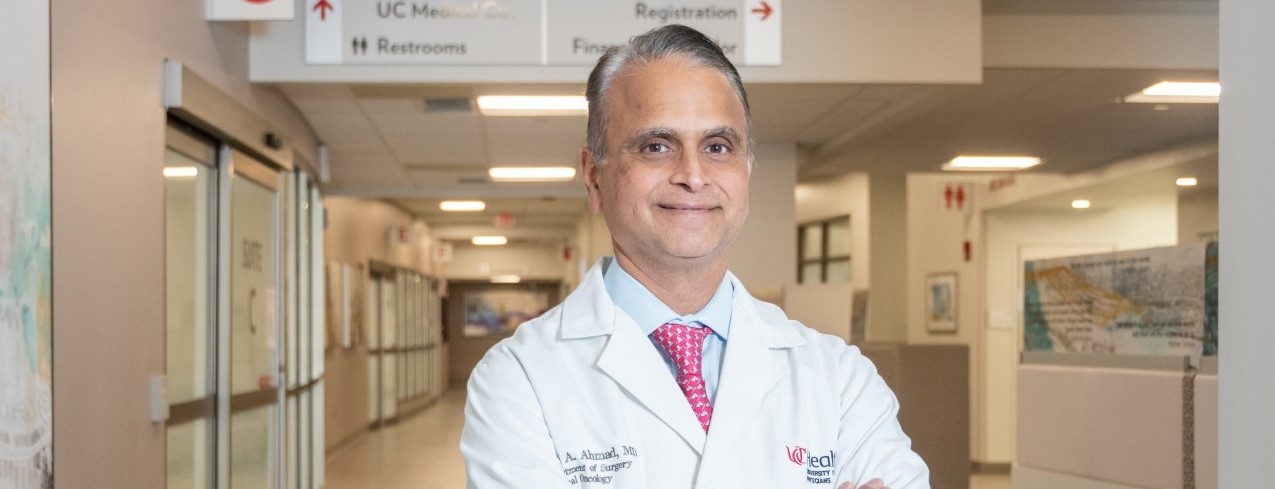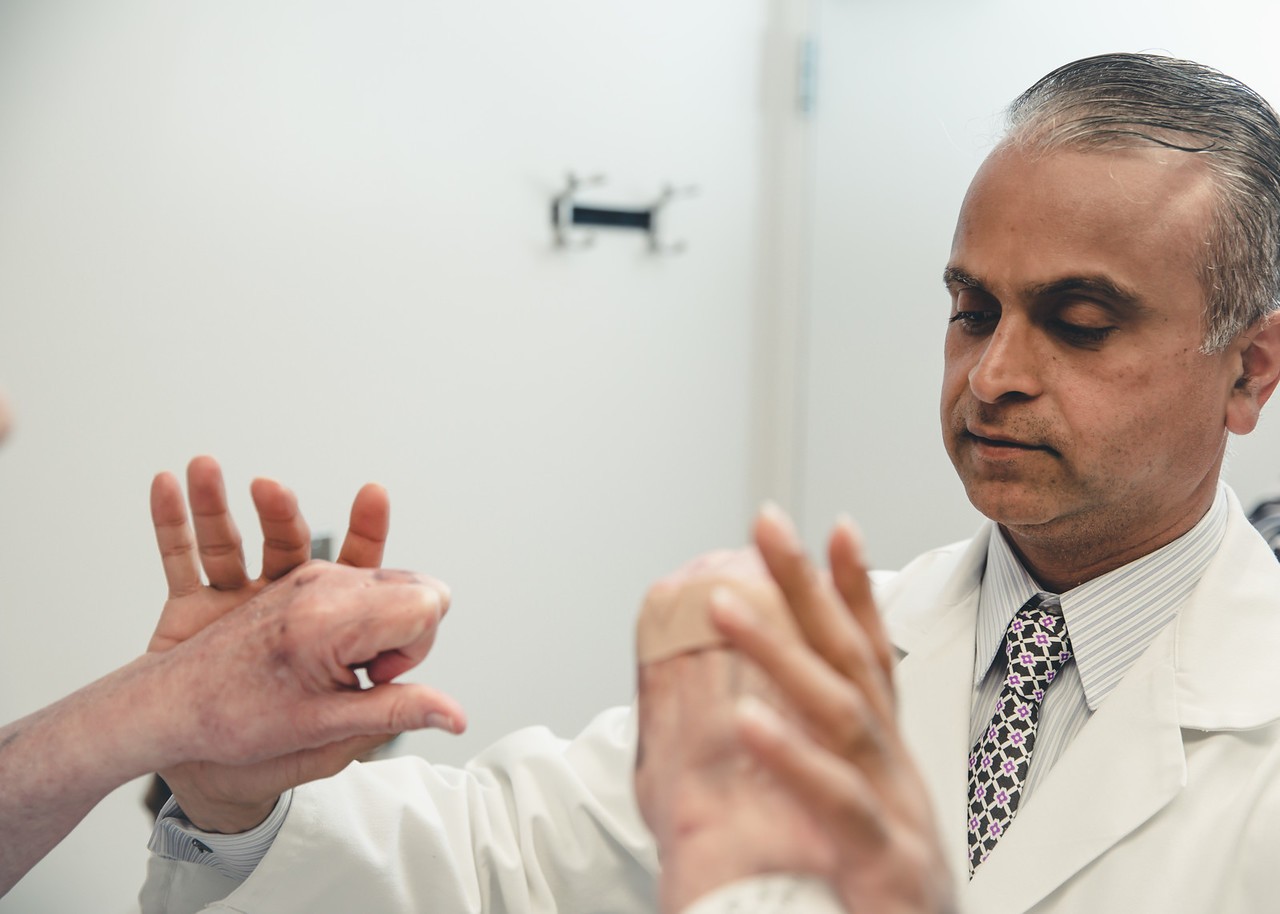
New trial tests chemotherapy regimen following pancreatic cancer surgery
UC’s Ahmad leads SWOG national clinical trial
A new clinical trial is testing the effectiveness of chemotherapy treatment following surgery for a subset of pancreatic cancer patients.
The University of Cincinnati’s Syed Ahmad, MD, is the national principal investigator for the phase 2 Southwest Oncology Group (SWOG) 2104 trial.
Ahmad said he began work on this project several years ago in collaboration with Heloisa Soares, MD, PhD, of the University of Utah, through their collaboration as members of the cooperative SWOG Cancer Research Network.
The trial focuses on patients with pancreatic neuroendocrine tumors. The current standard of care for these patients is surgery only, followed by observation, but a subset of patients are at high risk for their cancer to return, Ahmad said.

Dr. Ahmad is the principal investigator of the SWOG 2104 clinical trial. Photo/UC Health.
“In the past, we would just watch and wait as no studies had proven beneficial to prevent recurrence," said Ahmad, University of Cincinnati Cancer Center co-director and professor of surgery in UC’s College of Medicine. “However, there was a recent study in patients with advanced cancer showing the efficacy of chemotherapy drugs capecitabine and temozolomide. So we proposed and opened this combination of drugs in patients who have had surgery but are at high risk of recurrence.”
In the trial, patients who have had pancreatic neuroendocrine tumors surgically removed will be randomized to two study arms. Select patients will either receive the two chemotherapy drugs or a placebo.
“The primary endpoint is to see if we can prevent recurrence of the cancer,” Ahmad said. If the treatment regimen proves successful, it could lead to improved survival rates for these patients, he said.
The study has just opened at UC and aims to enroll 150 patients at sites throughout the country. Ahmad said being part of the SWOG Cancer Research Network helps advance research and patient care.
“It allows us to open studies at hundreds of sites to help with trial enrollment,” he said. “It allows us to open novel studies from other institutions so that our local patients have access to cutting edge therapy.”
Next Lives Here
The University of Cincinnati is classified as a Research 1 institution by the Carnegie Commission and is ranked in the National Science Foundation's Top-35 public research universities. UC's medical, graduate and undergraduate students and faculty investigate problems and innovate solutions with real-world impact. Next Lives Here.
Featured photo at top of Dr. Ahmad. Photo/University of Cincinnati Cancer Center.
Related Stories
'Paradigm-shifting' study confirms effectiveness of long-acting HIV treatment
February 26, 2026
The results of a clinical trial involving the University of Cincinnati, recently published in The New England Journal of Medicine, show people failing HIV treatments with oral medications were able to be treated successfully using injections.
How do horses whinny?
February 26, 2026
A horse makes the low-pitched part of its whinny by vibrating its vocal cords — similar to how humans speak and sing — and the high-pitched part by whistling with its voice box, according to a new paper published in the journal Current Biology and featured in Smithsonian magazine.
UC receives grant for AI use in medical education
February 26, 2026
The University of Cincinnati is turning to artificial intelligence to help solve a problem in medical training. The College of Medicine was awarded a grant valued at more than $1 million to use AI in advanced physician training through personalized learning.
